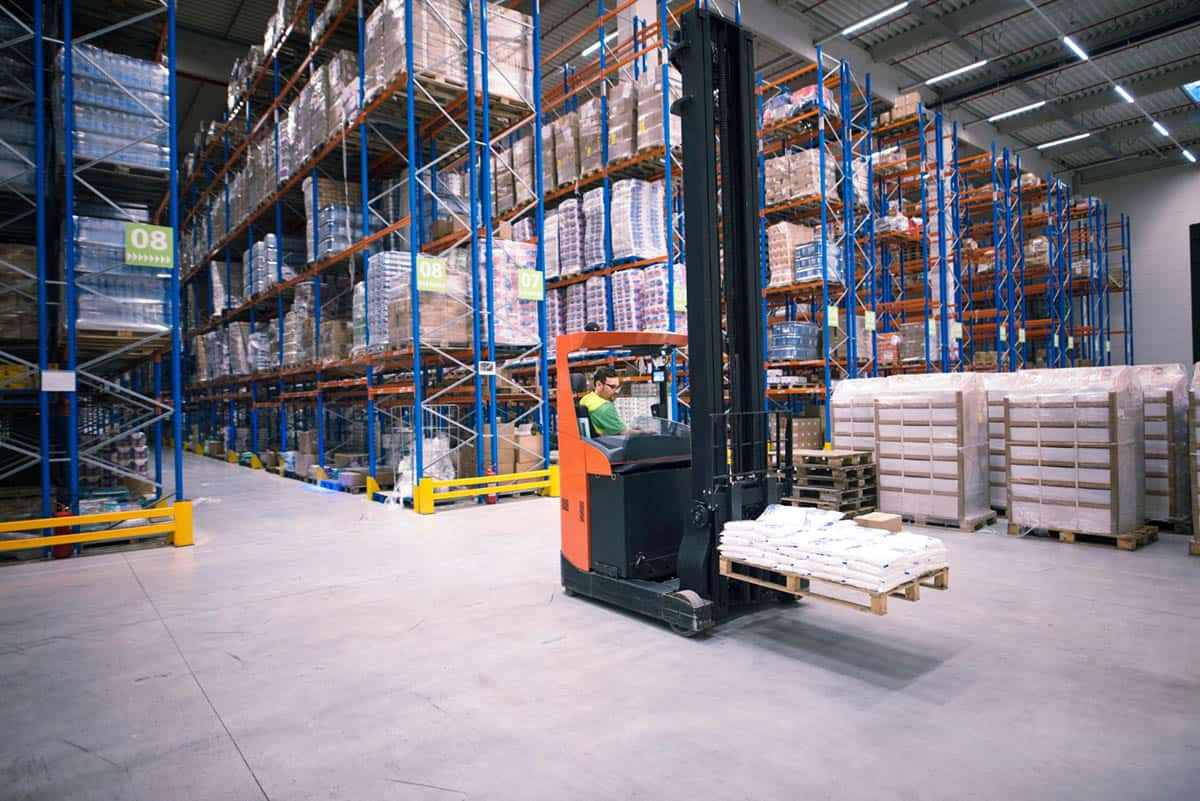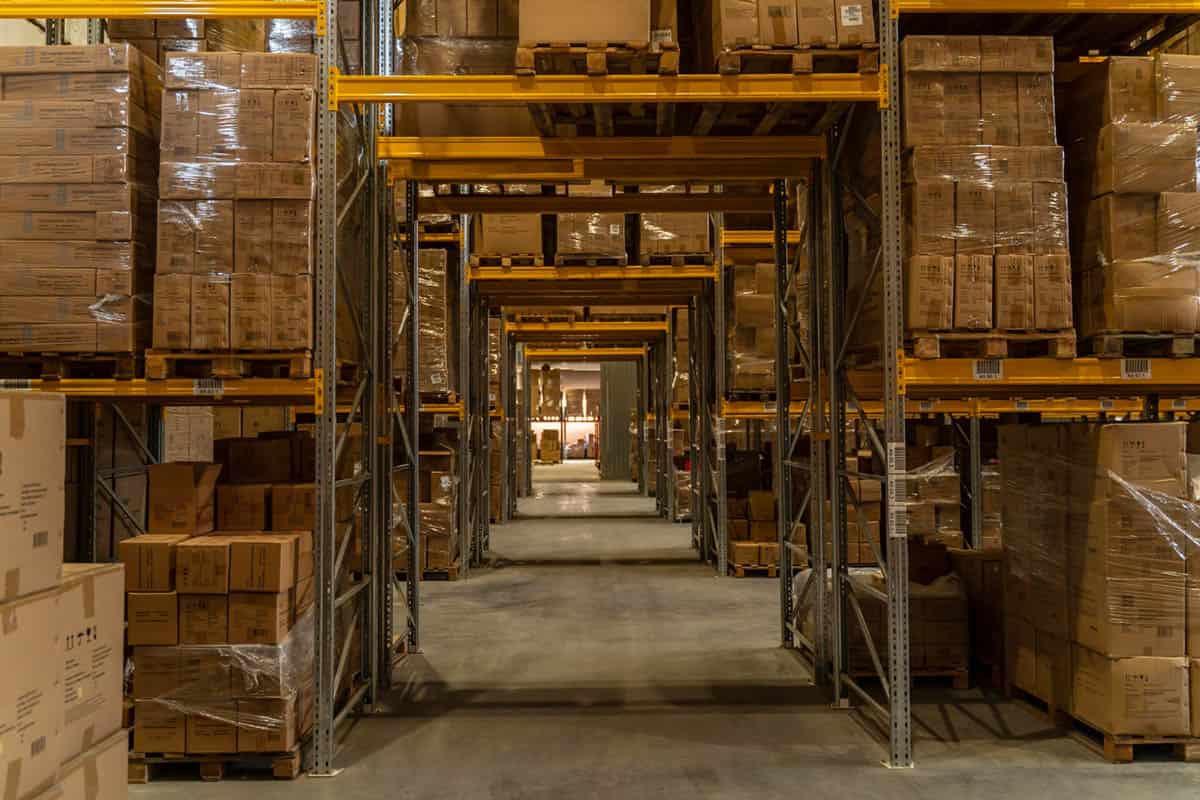
Article content:
Proper classification of warehouses allows companies to optimize their logistics operations and ensure uninterrupted supply of goods to consumers. In this article, we will consider the different types of warehouses used in logistics, as well as their classification and the services provided by modern warehouse complexes.
Logistics warehouses can be classified according to various criteria, such as purpose, location, size, and functionality. Here are some main types of warehouses:
The classification of logistics warehouses divides them into four classes: A, B, C, and D. This system of criteria was developed by major international consulting firms. It allows investors, tenants, and property owners to quickly assess the key characteristics of a warehouse, its functionality, and compliance with requirements.
Modern warehouses with high-tech equipment and maximum efficiency. They are equipped with modern automation systems and high safety standards: heating, ventilation, air conditioning, fire suppression (sprinkler systems), video surveillance, and access control. There are enough dock doors with adjustable dock levelers to simultaneously handle a large number of vehicles.
Solid buildings that require minimal upgrades to be used efficiently. Typically equipped with heating and have high ceilings for goods storage. They may have covered ramps or ground-level gates. Fewer gates than Class A, less-equipped approaches, and often no air conditioning. Still a decent option, but inferior to Class A.
Facilities that were not originally intended for warehousing. These are often repurposed buildings without specialized flooring, fire alarms, or access control. Ground-level gates with no docks or only a few. May have heating and ventilation, but don’t always maintain the required temperature for specific goods.
Inefficient or outdated facilities, such as basements or hangars, are suitable only for storing slow-moving goods. No ventilation, heating, or fire alarms. Concrete or dirt floors with serious unevenness. Usually, no designated loading/unloading zones, and operations are performed “from the ground.” Class D warehouses are often located outside the city, making transportation more difficult.
Classification and functions of warehouses in logistics are extremely important, as each product and business model requires the right set of features.
The table below presents the main parameters of warehouse classes:
|
Criterion |
A |
B |
C |
D |
|
Building type |
New, made of steel structures and sandwich panels |
Reconstructed or high-quality permanent building |
Former workshops, hangars |
Basements, unheated hangars |
|
Ceiling height |
From 10–12 m |
6–10 m |
4–8 m |
Not regulated |
|
Floor |
Level concrete with anti-dust coating |
Concrete or asphalt, minor unevenness allowed |
Asphalt, slabs without coating |
Concrete, asphalt, or ground |
|
Gates and docks |
Automated docks |
Dock-level gates or ramps |
Ground-level gates |
Standard gates |
|
Climate control |
Temperature and humidity control, ventilation |
Heating, natural ventilation |
Heating, insufficient ventilation |
No climate control |
|
Location |
Near highways, good access for trucks and trailers |
Good accessibility |
Industrial zones, often difficult access |
Outskirts |
The choice of warehouse class depends on the type of goods. If temperature control is required, for example for food products, storage must be arranged in class A/A+ warehouses.

Modern logistics centers offer a wide range of services that go beyond simple storage of goods. Here are some of the most common services:
When choosing an appropriate warehouse for their logistics operations, companies need to consider a number of important factors:
1. The location of the warehouse plays a key role in optimizing logistics routes and reducing transportation costs. Many companies use:
2. The size and capacity of the warehouse must correspond to the volume of goods and storage needs.
3. The level of automation and technologies used in the warehouse affects the efficiency of operations and the quality of customer service.
4. The cost of warehouse services, including rent, staff, and additional expenses, is an important financial factor.
5. The reputation and experience of the warehouse operator also play a role in ensuring the reliability and quality of services.
DiFFreight warehouse network is expanding: we offer storage in China (Foshan), the USA (New Jersey), and Europe (London, Hamburg, Warsaw). Our services include:
We also handle returns.
Warehouse storage with DiFFreight means maximum process automation. We treat every item with great care and take full responsibility for warehouse operations.
In conclusion, it’s important to highlight the significance of choosing the right logistics partner for successful business operations.
DiFFreight stands out with its extensive experience and wide range of services, providing clients with reliability and efficiency in goods delivery. By entrusting logistics to professionals, entrepreneurs can focus on growing their business and meeting customer needs.
Warehouse classification is the organization of storage facilities by purpose, storage type, automation level, and other characteristics. It helps businesses choose the optimal warehouse solution and reduce logistics costs.
Common types include transit warehouses, distribution centers, general storage warehouses, cold/freezer storage, automated warehouses (with WMS), cross-docking facilities, and temporary storage. Each type serves specific goods and use cases.
Consider product type (non-perishable, perishable, oversized), temperature requirements, handling frequency, and storage duration. For example, perishable goods need cold storage, while electronics require dry, secure environments.
Common mistakes include choosing solely based on lowest cost, ignoring temperature needs, selecting a location far from transport hubs, and lacking automation. These can increase logistics costs and affect product quality.